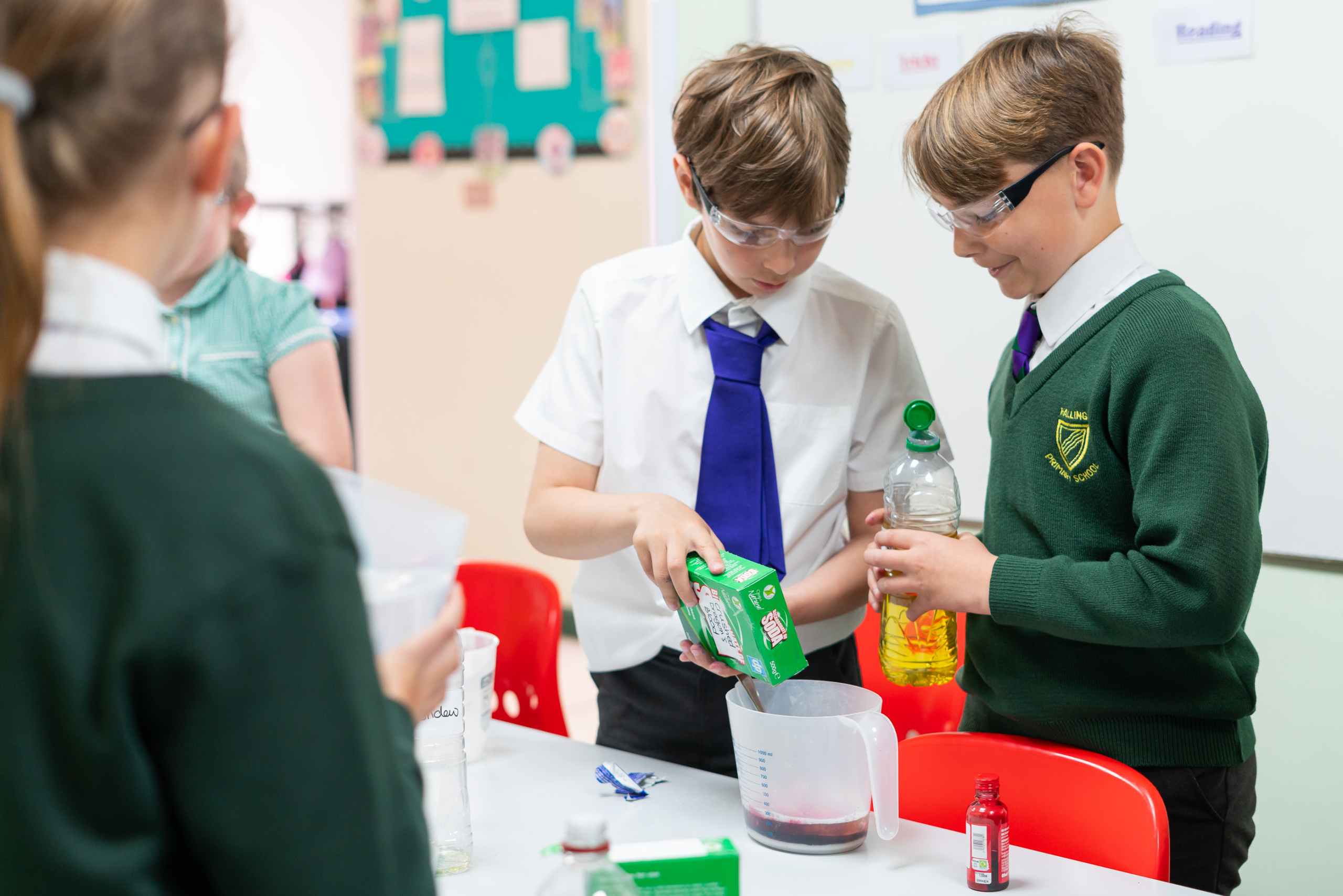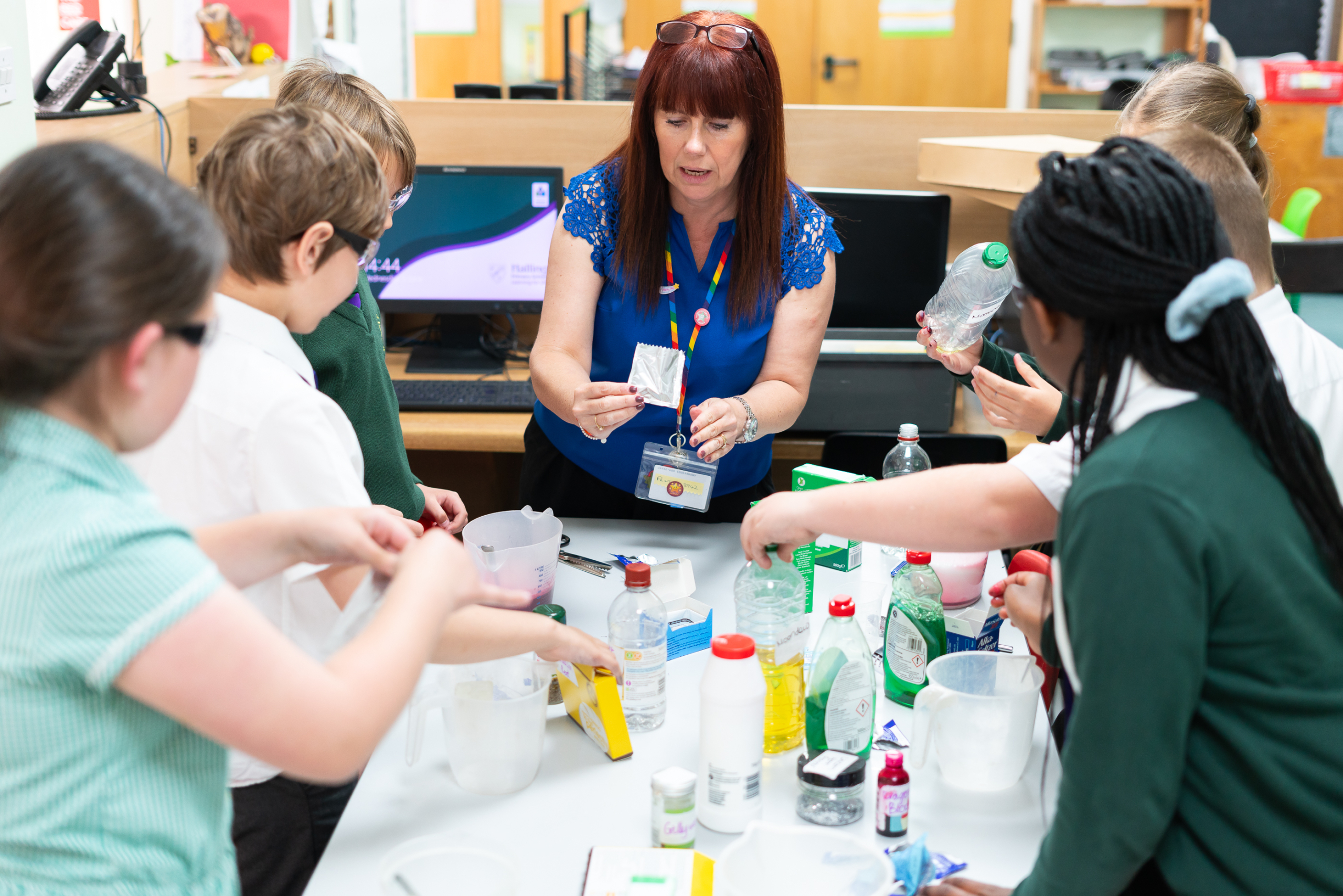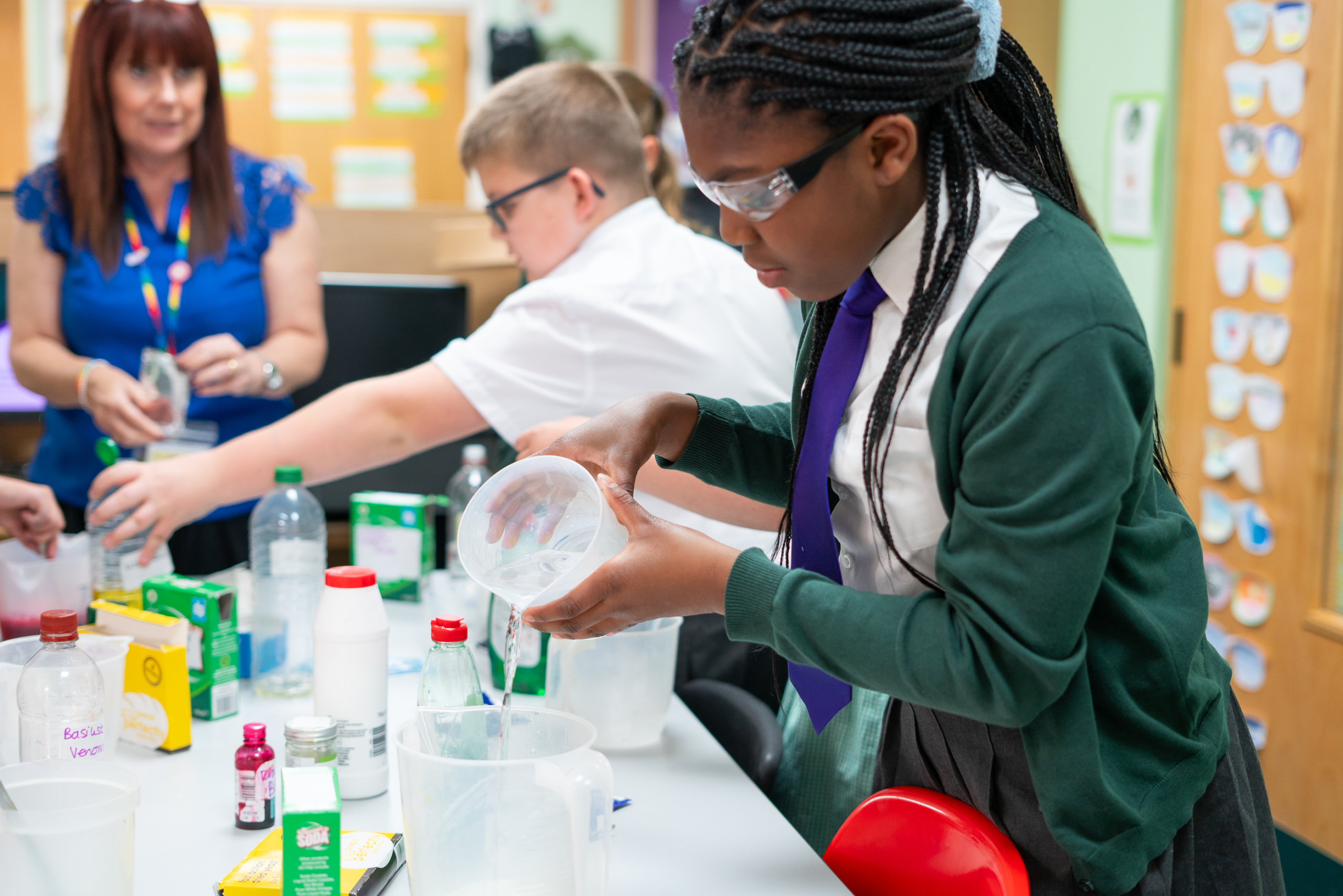Science Subject Leader: Miss E Staven
As a core subject, children are able to learn in a variety of different ways about how the world works. We encourage our pupils to be curious about how things work and give them the skills to develop key knowledge of the application of science.
Intent
The current National Curriculum for Science aims to ensure that all children:
- develop scientific knowledge and conceptual understanding through the specific disciplines of biology, chemistry and physics
- develop an understanding of the nature, processes and methods of science through different types of science enquiries that help them to answer scientific questions about the world around them
- are equipped with the scientific skills required to understand the uses and implications of science, today and in the future. We understand that it is important for lessons to have a skills-based focus, and that the knowledge can be taught through this
At Halling, we encourage children to be curious throughout their time at the school and beyond. The Science curriculum fosters a healthy inquisitive nature in children about our universe and promotes respect for living things.
We believe science encompasses the acquisition of knowledge, concepts, skills and positive attitudes. Throughout the milestones, the children will acquire and develop key knowledge as well as the application of scientific skills.
We ensure that the Working Scientifically skills are built-on and developed throughout children’s time at the school so that they can apply their knowledge of science when using equipment, conducting experiments, building arguments and explaining concepts confidently and continue to ask questions and be curious about their surroundings.


Implementation
Teachers create a positive attitude to science learning within their classrooms and reinforce an expectation that all children are capable of achieving high standards in science. Our whole school approach to the teaching and learning of science involves the following:
- Science will be planned and taught using the Essentials Curriculum by the class teacher. This is a strategy to enable repetition and a deeper understanding of learning.
- Each programme of study from the National Curriculum is taught in every year group to ensure repetition and mastery. The milestones build on previous learning for each programme of study.
- Through our planning, we involve problem-solving opportunities that allow children to find out for themselves. Children are encouraged to ask their own questions and be given opportunities to use their scientific skills and research to discover the answers. This curiosity is celebrated within the classroom. Planning involves teachers creating engaging lessons. Teachers use precise questioning in class to test conceptual knowledge and skills and assess children regularly to identify those children with gaps in learning so that all children keep up.
- We build upon the learning and skill development of the previous years. As the children’s knowledge and understanding increase, and they become more proficient in selecting, using scientific equipment, collating and interpreting results, they become increasingly confident in their growing ability to come to conclusions based on real evidence.
- Working Scientifically skills are embedded into lessons to ensure these skills are being developed throughout the children’s school career and new vocabulary and challenging concepts are introduced through direct teaching. This is developed through the years, in keeping with the topics.
- Teachers demonstrate how to use scientific equipment, and the various Working Scientific skills in order to embed scientific understanding. Teachers find opportunities to develop children’s understanding of their surroundings by accessing outdoor learning and workshops with experts.
- Children are offered a range of extra-curricular activities, visits and visitors to complement and broaden the curriculum. These are purposeful and link with the knowledge being taught in class.
- Events, such as Science Week or project days, allow all pupils to come off-timetable, to provide broader provision and the acquisition and application of knowledge and skills.
Impact
The successful approach at Halling results in a fun, engaging, high-quality science education, that provides children with the foundations and knowledge for understanding the world.
Our engagement with the local environment ensures that children learn through varied and first-hand experiences of the world around them. Through various workshops, visits and interactions with experts, children have the understanding that science has changed our lives and that it is vital to the world’s future prosperity.
Children learn the possibilities for careers in science, through visiting experts and Science Week activities.’ Children at Halling overwhelmingly enjoy science and this results in motivated learners with sound scientific understanding.

Science in Each Stage
Early science learning harnesses children’s natural curiosity and motivation to learn about the world around them. At EYFS it is important that children spend as much time as possible gaining knowledge of processes to form a solid foundation on which they can further develop as they get older.
This is taught through providing opportunities such as exploring the natural world, using their five sense, making observations, and predicting outcomes.
During years 1 and 2, children are taught to use scientific methods, processes and skills such as asking simple questions and recognising that they can be answered in different ways, close observation, using their observations and ideas to suggest answers to questions, performing simple tests using simple equipment, identifying and classifying, gathering and recording data to help in answering questions.
In Year 1, there are many expectations of children. For example, they should be able to identify and name a variety of common wild and garden plants and the basic parts of flowering plants. They should be able to identify and name a variety of common animals including carnivores, herbivores and omnivores and describe the weather associated with the different seasons and how day length varies.
In Year 2, some of the expectations of children are to be able to describe how plants need water, light and a suitable temperature to grow and stay healthy; describe the basic needs of animals (including humans) for survival; identify and compare the suitability of a variety of everyday materials including wood, metal, plastic, glass, brick, rock, paper and cardboard for particular uses.
During years 3 and 4, children are taught to develop their scientific methods, processes and skills further. This includes asking relevant questions and using different types of scientific enquiries to help answer them. They will also set up simple practical enquiries, and comparative and fair tests, make systematic and careful observations, and gather and record results using simple scientific language. They are expected to be able to classify and present data in a variety of ways to help answer questions whilst using their results to draw simple conclusions, make predictions for new values, suggest improvements and raise further questions.
One of the purposes of science teaching in upper Key Stage 2 is to create a deeper understanding of a wide range of scientific ideas through discussion, questioning, experimenting and analysing. In years 5 and 6 children need to work more systematically to plan different types of scientific enquiries to answer questions, including recognising and controlling variables as well as using a range of scientific equipment with increasing accuracy and precision. They will be concerned with the reliability of the data and take repeat readings when appropriate. They must record data and results of increasing complexity and test the results to make predictions to set up further comparative and fair tests. Findings are reported and presented and will be used to support or contest existing ideas or arguments.
Science Progression
Assessment
At Halling Primary School, we follow the Chris Quigley ‘Essentials’ Curriculum which sets out essential coverage, learning objectives, standards, and progress measures that are required for all subjects.
Across the curriculum for Years 1-6, learning will be grouped into three Milestones:
- Throughout Y1 and Y2, children will be assessed on the concepts contained in Milestone 1.
- During Y3 and Y4, all children will be assessed on the concepts contained in Milestone 2.
- Finally, in Y5 and Y6 all children will be assessed on Milestone 3.
During each term, we will continuously assess the depth of children’s understanding within that term’s Milestone
SEND Information
Our SEND and disadvantaged pupils are given the necessary support in class to fully access the supported Science curriculum. Learning is adapted where necessary to support SEND/EAL pupils to give equal opportunities for all to be confident in approaching any problems faced. Interventions, support and challenges are constantly revised and adapted to ensure all children are supported in achieving learning. The above areas are robustly and continuously monitored to ensure any gaps in learning are addressed.

